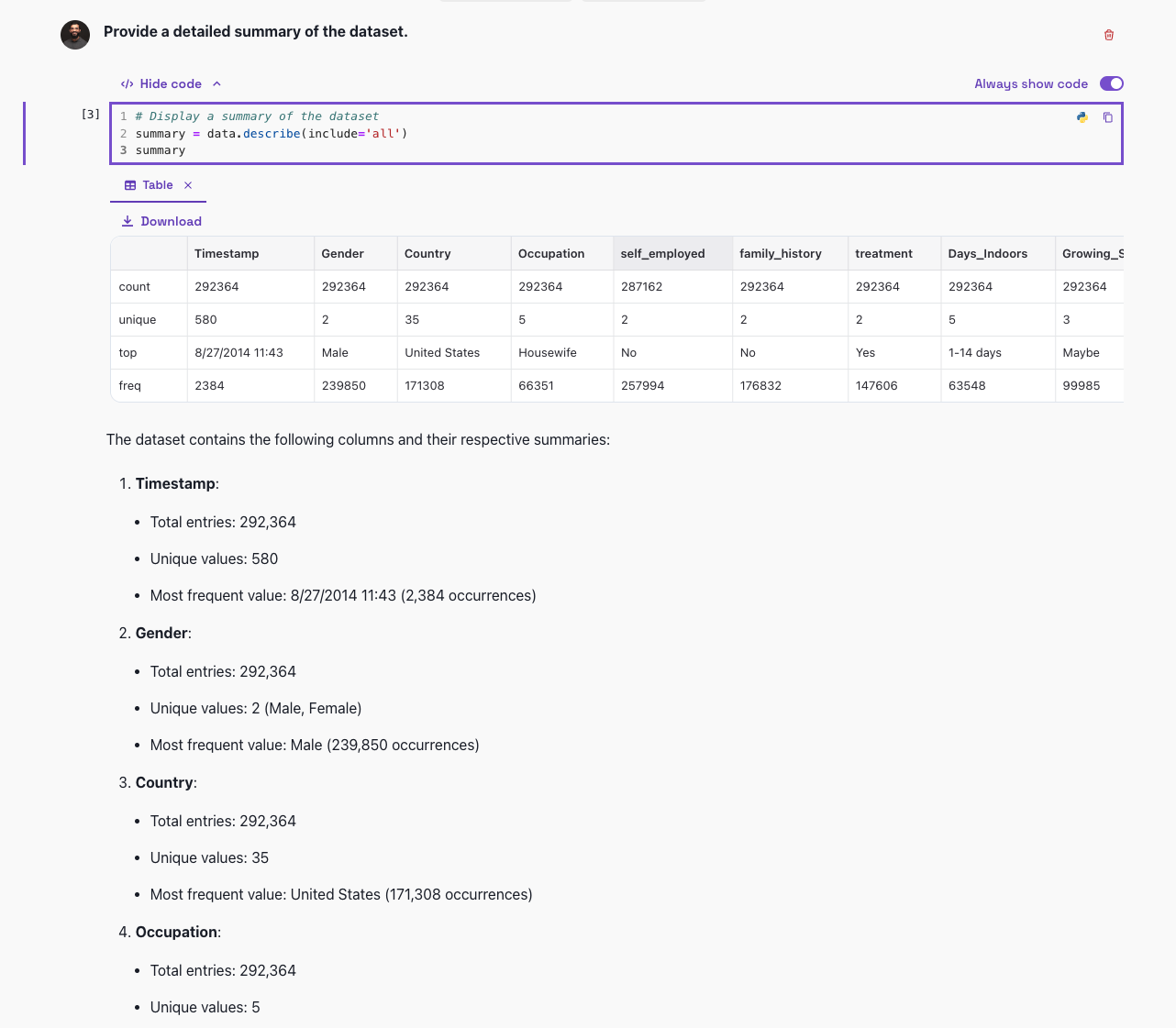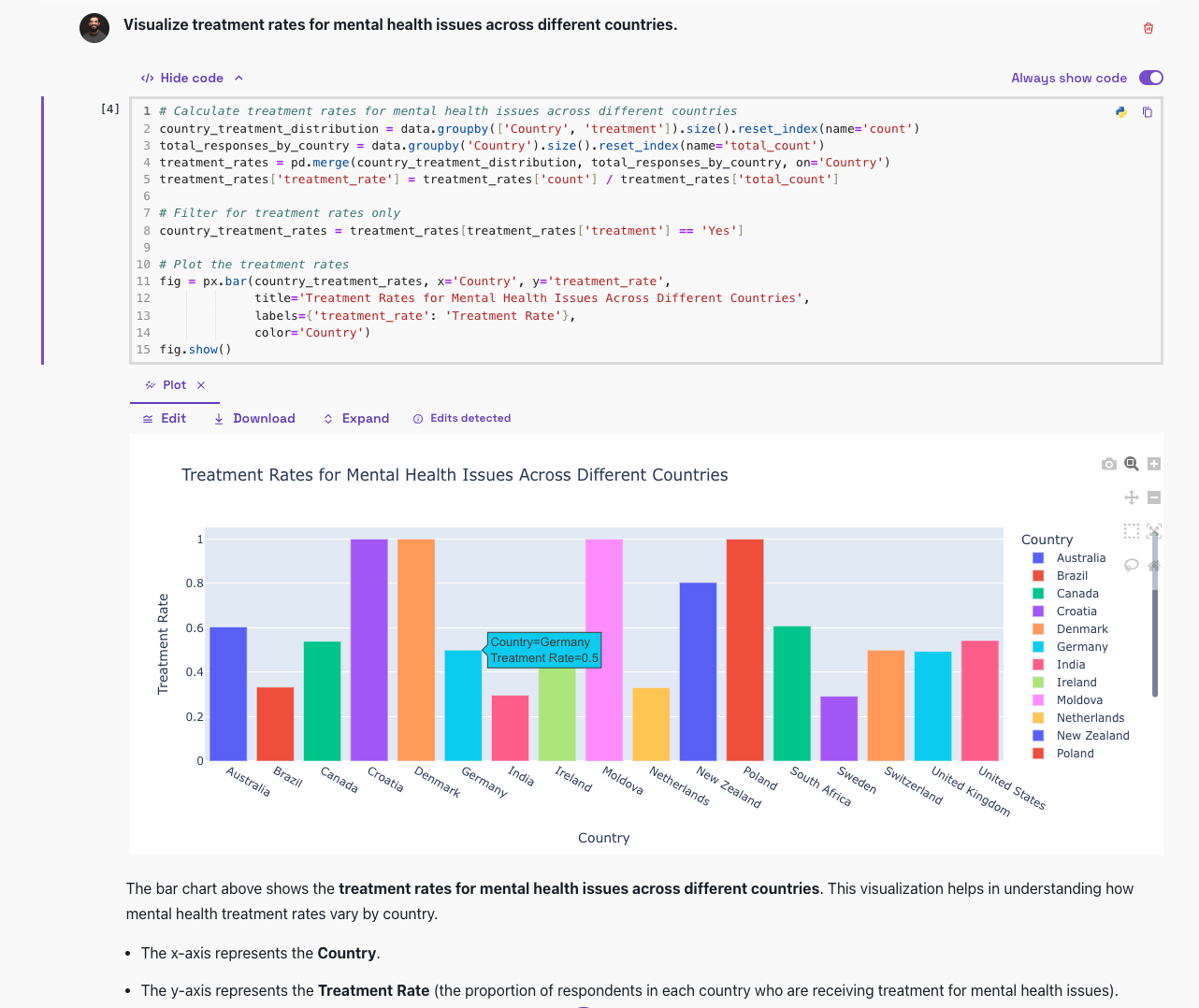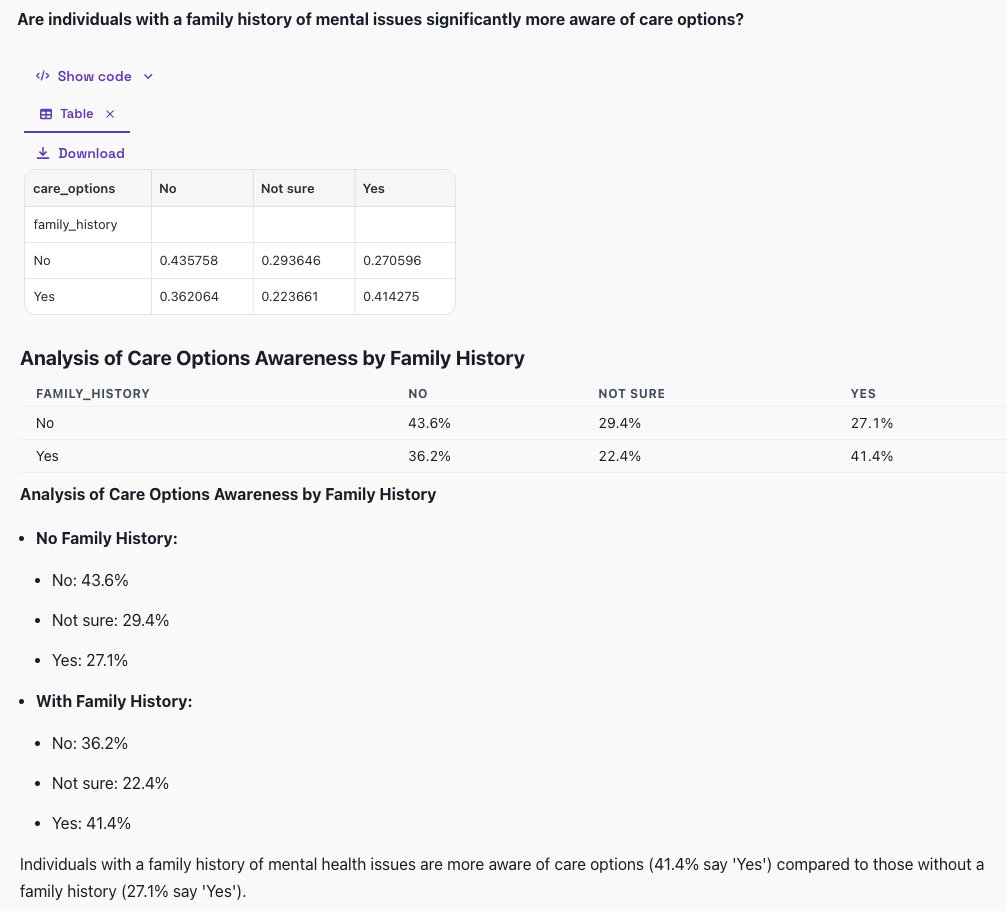Uncovering Healthcare Insights with AI Data Analysis
Explore how AI-driven analytics are transforming healthcare, predicting patient outcomes, and personalizing treatment plans with precision. Learn how Vizly subtly enhances this process by processing extensive health data to revolutionize care delivery and patient management.
Getting Started
To get started with uncovering your healthcare insights, import your dataset into Vizly. Vizly can accept CSV, Excel, or JSON files, and can import data from Google Sheets. For more instructions on how to get started, check out our Getting Started guide.
We will be using a mental health dataset for this example. You can access the dataset from Kaggle.
Importing data into Vizly is as easy as dragging and dropping!
After your data is successfully imported, you can begin your conversation with Vizly. Automated suggestions are provided to you in case you need a place to start.
Understanding the Data
To get an initial understanding of the data, we will ask Vizly for a summary of the dataset, focusing on key variables such as 'Gender', 'Country', 'Occupation', and 'Treatment'. This will help us understand the structure and distribution of the data.

Vizly provides a detailed summary of the dataset, helping you understand its structure.
The dataset contains responses from various countries, with a focus on mental health treatment and related factors. For example, analyzing the distribution of responses by gender and treatment status can provide insights into the demographics of the survey participants and their mental health status.
Analyzing Treatment Rates by Country
One way to utilize this dataset is by analyzing the treatment rates for mental health issues across different countries. Understanding the distribution of treatment rates can provide insights into the accessibility and acceptance of mental health care in different regions.

Visualize treatment rates for mental health issues across different countries.
For example, examining the proportion of respondents who received treatment in the United States compared to other countries can highlight disparities in mental health care access.
Identifying Correlations
Vizly can help identify correlations between different variables in the dataset. For instance, we can explore the relationship between family history of mental health issues and the likelihood of receiving treatment.

Identify correlations between different variables in the dataset.
A moderate positive correlation of 0.37 between treatment and family history in the mental health dataset suggests that individuals who are aware of their mental health issues through family history might be more proactive in seeking treatment due to increased awareness and reduced stigma around these conditions. This correlation highlights the potential impact of familial awareness and the changing perceptions of mental health on treatment-seeking behaviors.
To further explore how family history affects awareness of mental health care options, we can ask Vizly to dive deeper:

Explore the impact of family history on awareness of mental health care options.
We can see a clear pattern: 41.43% of individuals with a family history are aware of care options, compared to only 27.06% without. This significant difference underscores the impact of personal and familial experiences on mental health resource engagement.
Predicting Future Trends
Vizly can be used to forecast future trends in your data. In the context of mental health, Vizly can specifically predict the likelihood that individuals will seek treatment based on factors such as family history, enhancing proactive interventions and personalized care strategies.

Vizly can clean data, train models, and predict future trends.
Vizly has trained a Random Forest Classifer model that can accurately predict whether a person is likely to seek mental health treatment based on their survey responses. Our Random Forest Classifier model achieves an accuracy of 88.53%, with precision rates of 89% for those likely to seek treatment and 88% for those unlikely. Similarly, recall rates are 88% and 89%, respectively, with an F1-Score of 89% for both classes. This efficient performance underscores the model's capability to predict whether individuals will seek mental health treatment based on their responses.
Conclusion
Vizly is indispensable for healthcare professionals, streamlining data analysis and enhancing insights into patient data, particularly for complex areas like mental health. Vizly can also aid in forecasting health trends and facilitating timely interventions.
Try Vizly now